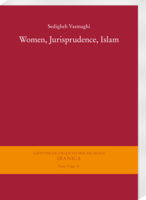|
|
more titles of the subject:
Download:
Please note: With adding digital Products to your cart
the payment will be handled via PayPal. The download will be provided after the payment is confirmed. Sedigheh Vasmahghi is a professor at the Faculty of Theology of the University of Tehran, specialising in Islamic theology and jurisprudence. In the course of her studies she has come to the conclusion that some of the traditional arguments leading to the current majority view on the rights of women in Shi’ite Islam are based on faulty reasoning or on a misinterpretation of the original sources. Her arguments imply that mainstream Shi’ite Islam, and therefore the Iranian State, should review its position on the status of women in society, offering women a far better legal status than they have at present. Since the publication of her works in Iran, Professor Vasmaghi has become the object of harsh criticism by conservative clergy and representatives of the state. Nevertheless, her voice is heard by many and has become an important factor in the current discourse on the rights of women in Islam.
The theological and legal arguments in this book are crystal clear and very convincing, and they are likely to stimulate the debate on the position of women in Shi’ite Islam for a long time. This translation of her most important book is therefore of great importance to all those who are interested in development and renewal in Islamic cultures in general, and in Iran in particular. |
|||||||||||||||||||||||||||||||||||||||||||






